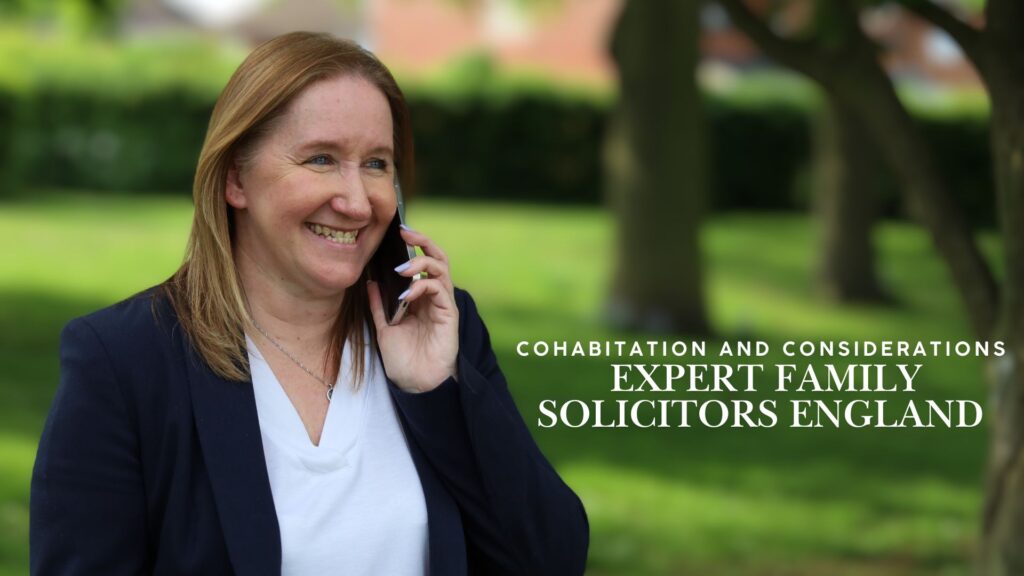In today’s society, more couples than ever are choosing to live together without getting married. While cohabitation offers flexibility and freedom, it’s important to understand the legal implications that come with it. Unlike married couples, cohabiting partners don’t have the same legal protections when it comes to property, finances, and other key areas of life, which can lead to complications in the event of a separation.
In this blog post, we’ll explore the legal landscape of cohabitation, how it differs from marriage, and the litigation involved when disputes arise. We’ll also explain how a family law solicitor can help you protect your rights through cohabitation agreements and legal representation.
What Is Cohabitation?
Cohabitation refers to two people living together in a committed relationship without being legally married. Although cohabiting couples often share property, finances, and even children, the law treats them very differently from married couples.
A common misconception is that long-term cohabiting couples automatically acquire rights similar to those of married couples under “common law marriage,” but this is not the case. In the UK, there is no such thing as common law marriage, meaning cohabiting partners have limited legal protection unless they take specific legal steps to protect their rights.
Legal Differences Between Marriage and Cohabitation
When it comes to marriage, the law provides a robust framework to ensure the protection of both partners in the event of separation or death. This includes automatic rights to shared property, pensions, and inheritance, as well as spousal maintenance obligations. However, for cohabiting couples, these protections do not automatically apply.
Here are some of the key differences:
What Happens When a Cohabiting Couple Separates?
- Property Rights: For married couples, property acquired during the marriage is usually considered joint property. In contrast, cohabiting couples do not have automatic rights to each other’s property. So, if the relationship ends, ownership of the property will depend on whose name is on the legal title. Disputes over property ownership are common in cohabitation litigation.
- Financial Support: Married partners have a legal duty to financially support each other. However, cohabiting partners have no such obligation, and there is no legal entitlement after separation, unless specific legal agreements are in place.
- Inheritance: Without a will, a married spouse will usually inherit their partner’s estate. For cohabiting couples, however, the surviving partner has no automatic right to inherit unless explicitly stated in a will. Disputes over inheritance can also lead to litigation.
Disputes Over Cohabitation Separation
When a cohabiting couple separates, the lack of legal protections can lead to disputes over property, finances, and children. Unlike divorce proceedings, separating cohabiting couples often face a much more complex and uncertain process.
Some common areas of dispute include:
- Property Ownership
If only one partner’s name is on the title deeds, the other partner may have no legal claim to it, even if they have contributed financially. Cohabiting partners may be able to claim a “beneficial interest“ in the property if they can prove they made contributions toward expenses. Litigation over property ownership often requires detailed evidence of financial contributions and the nature of the couple’s agreement. - Financial Contributions
Unlike married couples, cohabiting partners have no automatic right to spousal maintenance. If one partner has been financially dependent on the other, there are no legal guarantees of continued support. Disputes over financial contributions during the relationship can lead to litigation if one partner feels they have been unfairly treated. - Children and Parental Responsibility
Cohabiting partners face many of the same challenges as married couples in terms of child custody and child support. However, issues can arise if the father is not named on the child’s birth certificate, as this can affect parental responsibility rights. In cases of dispute, cohabiting parents may need to apply for Child Arrangement Orders or Parental Responsibility Orders, which often involve litigation.
How a Cohabitation Agreement Can Help
One of the best ways to protect your rights and avoid future disputes is by creating a cohabitation agreement. This legal document sets out the financial and property arrangements between cohabiting partners. It provides clarity and protection in case the relationship breaks down.
A cohabitation agreement can cover a range of issues, including:
- Property ownership: Detailing who owns what and how assets will be divided in the event of separation.
- Financial contributions: Clarifying how bills, mortgages, and other expenses are shared, and what happens if one partner contributes more.
- Maintenance: Specifying whether one partner will provide financial support to the other after separation.
- Parental responsibility: Outlining arrangements for the care and financial support of any children.
A cohabitation agreement provides legal clarity and can prevent disputes from escalating to litigation. It’s important to ensure that both parties seek independent legal advice to ensure the agreement is fair and enforceable.
Litigation in Cohabitation Disputes
In cases where disputes cannot be resolved through negotiation or mediation, litigation may be necessary. Some of the common types of litigation in cohabitation disputes include:
- Property Claims
If a couple cannot agree on who owns the property or how it should be divided, one partner may need to bring a claim in court. The court will look at factors such as financial contributions and whether one partner has a beneficial interest in the property. - Financial Disputes
If there are disputes over shared finances, litigation may be necessary to resolve these issues. Cohabiting partners do not have automatic rights to a share of each other’s assets. This means litigation may be required to prove entitlement. - Parental Disputes
Litigation may be necessary if parents cannot agree on child custody or support arrangements. The court will always prioritise the welfare of the child when making decisions about custody and support. - Inheritance Disputes
If a cohabiting partner dies without leaving a will, the other may need to bring a claim under the Inheritance (Provision for Family and Dependants) Act 1975 if they were financially dependent on their partner. This can lead to litigation if other family members contest the claim.
How a Family Law Solicitor Can Help
If you’re cohabiting or considering cohabiting, consulting with a family law solicitor can help you protect your rights and avoid future disputes. Here’s how a solicitor can assist:
- Drafting Cohabitation Agreements
A solicitor can help you draft a legally binding cohabitation agreement. This agreement clearly outlines your financial and property arrangements. This document will provide clarity and prevent disputes if the relationship ends. - Providing Legal Advice
If you’re facing a dispute, a solicitor can provide expert advice on your rights and options, helping you understand your legal position and whether litigation is necessary. - Mediation and Negotiation
Solicitors can assist with mediation or negotiation. This will help you and your partner reach an agreement without the need for court intervention. This can save time, money, and emotional stress. - Litigation Support
If litigation is necessary, a family law solicitor will represent you in court. They will present your case effectively and advocate for your rights. Whether it’s a property claim, financial dispute, or parental responsibility issue, having legal representation is crucial for achieving a fair outcome.
Conclusion
Cohabiting couples face unique legal challenges, especially when it comes to property, finances, and parental rights. Without the legal protections of marriage, it’s essential to take proactive steps to safeguard your interests. A cohabitation agreement can provide much-needed clarity and protection, while a family law solicitor can help you navigate any disputes or litigation that arise.
At Geraldine Watson Family Law Solicitors, we specialise in cohabitation matters and can assist with everything from drafting agreements to representing you in court. Contact us today to discuss how we can help you protect your rights as a cohabiting partner.

